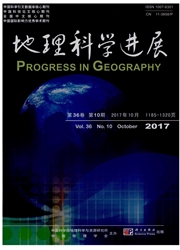

 中文摘要:
中文摘要:
如何保护与发展地方传统文化是许多历史城市所面临的一个重要问题。基于文化生态学理论,将文化当作一个有机体,当其生存环境发生变化之后,文化所包含的内容将发生一系列变化。本文以北京什刹海历史街区为例,探讨在旧城更新与全球化的双重作用下,地方文化如何回应环境的变化。资料分析和调查结果表明:什刹海的传统文化特色正在削弱,且外来文化与地方文化之间存在隔离;外来文化进入什刹海之后一般会产生适应新环境的进化现象;就什刹海地方文化建议而言,要最大程度的保护传统物质空间,积极发展具有地方文化特色的业态,尽量维持原有社会网络和生活方式。
 英文摘要:
英文摘要:
How to protect and develop local traditional culture is an essential problem faced by historic cities.According to cultural ecology,culture is deemed as an organism in the ecological system,which will change with the environment.This research,taking the Shichahai historic district of Beijing as an example,discusses how local culture changes in response to urban renewal and globalization.Shichahai historic district holds the largest land and population of all the 25 protected districts of history and culture in Beijing.The local culture of Shichahai is representative of Beijing culturel,which is a conbination of royal culture,celebrity culture and civil culture.The local culture here is a kind of "recreation culture".In fact,Shichahai area has been known as a commercial district and a recreation district since the Ming Dynasty.All the people,both the rich and the poor,can have fun in the same place,and this make Shichahai so special compared to the other parts of Beijing.The research result shows that the traditional characteristics of local culture in Shichahai are fading away.Furthermore,as we find from the survey,the participants of current culture(owners and customers of the bars) are not local people.There is a lack of communication between local culture and current culture.This research also finds that foreign culture will change itself in order to adapt to the new environment.Finally,this paper put forward some suggestions for reconstructing the local culture of Shichahai,that is to protect the material environment,develop characteristic cultural industry and keep the original social networks and life style.
 同期刊论文项目
同期刊论文项目
 同项目期刊论文
同项目期刊论文
 Spatio-temporal Analysis of Urban Spatial Interaction in Globalizing China—A Case Study of Beijing-S
Spatio-temporal Analysis of Urban Spatial Interaction in Globalizing China—A Case Study of Beijing-S Spatiotemporal evolution of China's railway network in the 20th century: An accessibility approach (
Spatiotemporal evolution of China's railway network in the 20th century: An accessibility approach ( Exploring the network structure and nodal centrality of China’s air transport network: A complex net
Exploring the network structure and nodal centrality of China’s air transport network: A complex net 期刊信息
期刊信息
